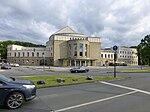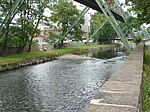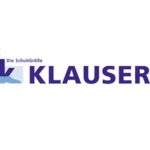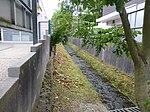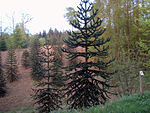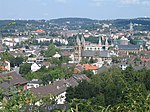Engels-Haus
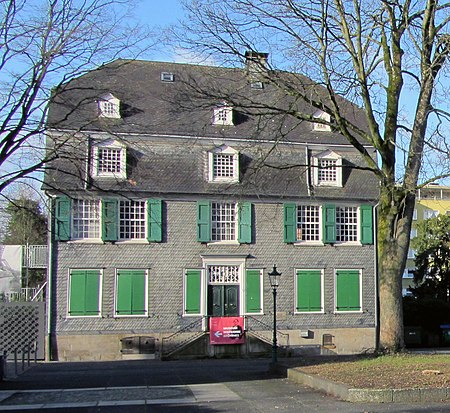
Engels-Haus is a museum in Wuppertal, Germany, located in the house where Friedrich Engels (1820–1895) grew up. The museum is a constituent member of the Museum of Industrial Culture in Wuppertal. The late baroque Berg house was built in 1775 by Eberhard Haarmann in what was then Barmen, Berg. The father of Engels, Friedrich Engels Sr., was born in the house in 1796. Engels himself was born in a different house owned by the family approximately 100 m (330 ft) to the east that has since been destroyed, but spent his youth growing up at Engels-Haus. The museum was opened in 1970 on the 150th anniversary of Engels' birth, and became a popular destination for tourists and socialists. The museum was closed in 2016 for refurbishment. The museum's planned re-opening in 2020 for the 200th anniversary of Engels' birth was cancelled due to the COVID-19 pandemic. Nevertheless, in the presence of the Minister for Culture and Science of the State of North Rhine-Westphalia, Isabel Pfeiffer-Poensgen, and over 300 guests, the museum was reopened with the new permanent exhibition on the life and work of Friedrich Engels on 11 September 2021. The highlight of this event was the unveiling of the international art project Inside out Engels.
Excerpt from the Wikipedia article Engels-Haus (License: CC BY-SA 3.0, Authors, Images).Engels-Haus
Engelsstraße, Wuppertal Barmen
Geographical coordinates (GPS) Address External links Nearby Places Show on map
Geographical coordinates (GPS)
| Latitude | Longitude |
|---|---|
| N 51.2664 ° | E 7.1907 ° |
Address
Engels-Haus (Benjamin-Engels-Haus)
Engelsstraße 10
42283 Wuppertal, Barmen
North Rhine-Westphalia, Germany
Open on Google Maps
